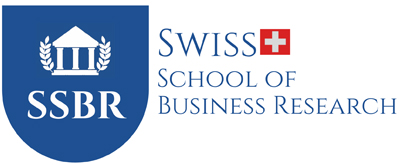Swiss education has a well-earned reputation as one of the world’s leading academic systems. But how did Switzerland develop so well? And what does this mean for students who want to study bachelor’s, master’s and doctoral programs in the Swiss method?
The Development of Swiss Education
Due to Switzerland’s geographical location, it has historically had a lack of natural resources. Added on to the fact that its Alpine landscape left it somewhat excluded from major trading routes, the country had to look for resources elsewhere.
This is perhaps why Swiss people have always put such an emphasis on education. Switzerland was among the first countries to establish a university. Founded in 1460, the University of Basel is Switzerland’s oldest university and among the oldest in the world.

Einstein – one of the many leading academics to study in Switzerland
Educational innovation went hand-in-hand with the country’s neutral politics. Over the centuries, as wars raged around Europe, some of the world’s greatest minds, like Lord Byron and Albert Einstein, moved there and added to the academic excellence.
The educational pedigree that runs in the veins of the country can still be clearly seen today. Its dedication to education put it top of the 2020 IMD World Talent Ranking. According to the survey, one of the key factors was the Swiss education system, from the primary level to Higher Education Institutions.
And it’s not just a case of getting a bachelor’s degree and hitting the workforce. Switzerland ranks second in Europe for inhabitants with a doctoral degree – a whole 2.5% of the population.
An international and innovative learning environment
Swiss Education’s international reputation means its higher education institutions are highly appealing to foreign students. Around 50% of the country’s doctoral students come from abroad to make a melting pot of diverse ideas.
Switzerland manages to balance historic traditions with a forward-thinking attitude. In 2020, the World Economic Forum named it the most innovative country in the world. That would be impressive enough, but this is in fact the tenth year in a row that the country has received the award.
Both public and private higher education systems in Switzerland cover many bases. In particular, private business schools such as the Swiss School of Business Research attract leading minds from all over the world to create a dynamic learning environment. Project-based learning and research led by stand-out faculty put students in a uniquely innovative breeding ground.
International possibilities
With a vast amount of classes delivered in English, Swiss higher education is a great option for international students. This has become even more relevant as online learning has taken off. Students from all over the world can access this quality education without having to make drastic changes to their lifestyle.

Switzerland is a top destination for international students. Photo by Nareeta Martin on Unsplash
Furthermore, students who wish to continue their education in other European universities can easily transfer thanks to the Bologna Process. This declaration from 1999 has unified the credit systems of 48 countries, offering endless opportunities for continued learning.
As well as the credit system, Swiss accreditations are recognized throughout the world as a stamp of educational excellence. Accrediting bodies, such as EduQua, held by SSBR, rigorously test the overall quality of HEIs so employers and students can instantly recognize quality.
With Switzerland’s history in education, and the advantages it has for so many students, it is little wonder why so many international students choose Swiss institutions to study.
If you want to find out more about how a Swiss education could benefit you, contact the Swiss School of Business Research Admissions Team.

